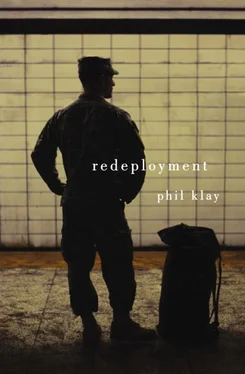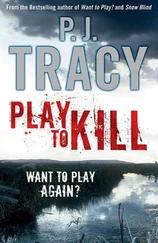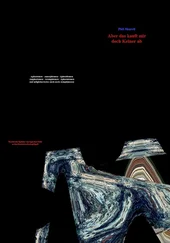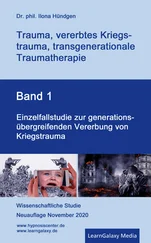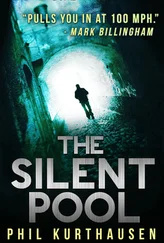Eventually, Boylan is sleeping on my floor and I’m sitting by his side, drinking whiskey slow and envying him from the depths of my noncombat heart. I don’t know why. He’s not proud of his Bronze Star. He refuses to tell the story. “It was a bad day,” is the most I’ve ever heard from him. I don’t even know what it is he has that I want. I just know I want it. And he’s right here in front of me, close enough that I’ve spilled whiskey on him twice.
Agamben speaks of the difference between men and animals being that animals are in thrall to stimuli. Think a deer in the headlights. He describes experiments where scientists give a worker bee a source of nectar. As it imbibes, they cut away its abdomen, so that instead of filling the bee up, the nectar falls out through the wound in a trickle that pours as fast as the bee drinks. You’d think the bee might change its behavior in response, but it doesn’t. It keeps happily sucking away at the nectar and will continue indefinitely, enthralled by one stimulus—the presence of nectar—until released by another—the sensation of satiety. But that second stimulus never comes—the wound keeps the bee drinking until it finally starves.
I splash a little more whiskey on Boylan, halfway hoping he’ll wake up.
This morning our gun droppedabout 270 pounds of ICM on a smuggler’s checkpoint ten kliks south of us. We took out a group of insurgents and then we went to the Fallujah chow hall for lunch. I got fish and lima beans. I try to eat healthy.
At the table, all nine of us are smiling and laughing. I’m still jittery with nervous excitement over it, and I keep grinning and wringing my hands, twisting my wedding band about my finger. I’m sitting next to Voorstadt, our number one guy, and Jewett, who’s on the ammo team with me and Bolander. Voorstadt’s got a big plate of ravioli and Pop-Tarts, and before digging in, he looks up and down the table and says, “I can’t believe we finally had an arty mission.”
Sanchez says, “It’s about time we killed someone,” and Sergeant Deetz laughs. Even I chuckle, a little. We’ve been in Iraq two months, one of the few artillery units actually doing artillery, except so far we’ve only shot illumination missions. The grunts usually don’t want to risk the collateral damage. Some of the other guns in the battery had shot bad guys, but not us. Not until today. Today, the whole damn battery fired. And we know we hit our target. The lieutenant told us so.
Jewett, who’s been pretty quiet, asks, “How many insurgents do you think we killed?”
“Platoon-sized element,” says Sergeant Deetz.
“What?” says Bolander. He’s a rat-faced professional cynic, and he starts laughing. “Platoon-sized? Sergeant, AQI don’t have platoons.”
“Why you think we needed the whole damn battery?” says Sergeant Deetz, grunting out the words.
“We didn’t,” says Bolander. “Each gun only fired two rounds. I figure they just wanted us all to have gun time on an actual target. Besides, even one round of ICM would be enough to take out a platoon in open desert. No way we needed the whole battery. But it was fun.”
Sergeant Deetz shakes his head slowly, his heavy shoulders hunched over the table. “Platoon-sized element,” he says again. “That’s what it was. And two rounds a gun was what we needed to take it out.”
“But,” says Jewett in a small voice, “I didn’t mean the whole battery. I meant, our gun. How many did our gun, just our gun, kill?”
“How am I supposed to know?” says Sergeant Deetz.
“Platoon-sized is like, forty,” I say. “Figure, six guns, so divide and you got, six, I don’t know, six point six people per gun.”
“Yeah,” says Bolander. “We killed exactly 6.6 people.”
Sanchez takes out a notebook and starts doing the math, scratching out the numbers in his mechanically precise handwriting. “Divide it by nine Marines on the gun, and you, personally, you’ve killed zero point seven something people today. That’s like, a torso and a head. Or maybe a torso and a leg.”
“That’s not funny,” says Jewett.
“We definitely got more,” says Sergeant Deetz. “We’re the best shots in the battery.”
Bolander snorts. “We’re just firing on the quadrant and deflection the FDC gives us, Sergeant. I mean…”
“We’re better shots,” says Sergeant Deetz. “Put a round down a rabbit hole at eighteen miles.”
“But even if we were on target…,” says Jewett.
“We were on target,” says Sergeant Deetz.
“Okay, Sergeant, we were on target,” says Jewett. “But the other guns, their rounds could have hit first. Maybe everybody was already dead.”
I can see that, the shrapnel thudding into shattered corpses, the force of it jerking the limbs this way and that.
“Look,” says Bolander, “even if their rounds hit first, it doesn’t mean everybody was dead, necessarily. Maybe some insurgent had shrapnel in his chest, right, and he’s like—” Bolander sticks his tongue out and clutches his chest dramatically, as if he were dying in an old black-and-white movie. “Then our round comes down, boom, blows his fucking head off. He was dying already, but the cause of death would be ‘blown the hell up,’ not ‘shrapnel to the chest.’”
“Yeah, sure,” says Jewett, “I guess. But I don’t feel like I killed anybody. I think I’d know if I killed somebody.”
“Naw,” says Sergeant Deetz, “you wouldn’t know. Not until you’d seen the bodies.” The table quiets for a second. Sergeant Deetz shrugs. “It’s better this way.”
“Doesn’t it feel weird to you,” says Jewett, “after our first real mission, to just be eating lunch?”
Sergeant Deetz scowls at him, then takes a big bite of his Salisbury steak and grins. “Gotta eat,” he says with his mouth full of food.
“It feels good,” Voorstadt says. “We just killed some bad guys.”
Sanchez gives a quick nod. “It is good.”
“I don’t think I killed anybody,” says Jewett.
“Technically, I’m the one that pulled the lanyard,” says Voorstadt. “I fired the thing. You just loaded.”
“Like I couldn’t pull a lanyard,” says Jewett.
“Yeah, but you didn’t,” says Voorstadt.
“Drop it,” says Sergeant Deetz. “It’s a crew-served weapon. It takes a crew.”
“If we used a howitzer to kill somebody back in the States,” I say, “I wonder what crime they’d charge us with.”
“Murder,” says Sergeant Deetz. “What are you, an idiot?”
“Yeah, murder, sure,” I say, “but for each of us? In what degree? I mean, me and Bolander and Jewett loaded, right? If I loaded an M16 and handed it to Voorstadt and he shot somebody, I wouldn’t say I’d killed anyone.”
“It’s a crew-served weapon,” says Sergeant Deetz. “Crew. Served. Weapon. It’s different.”
“And I loaded, but we got the ammo from the ASP,” I say. “Shouldn’t they be responsible, too, the ASP Marines?”
“Yeah,” says Jewett. “Why not the ASP?”
“Why not the factory workers who made the ammo?” says Sergeant Deetz. “Or the taxpayers who paid for it? You know why not? Because that’s retarded.”
“The lieutenant gave the order,” I say. “He’d get it in court, right?”
“Oh, you believe that? You think officers would take the hit?” Voorstadt laughs. “How long you been in the military?”
Sergeant Deetz thumps his fist on the table. “Listen to me. We’re Gun Six. We’re responsible for that gun. We just killed some bad guys. With our gun. All of us. And that’s a good day’s work.”
“I still don’t feel like I killed anybody, Sergeant,” says Jewett.
Читать дальше
